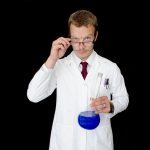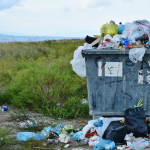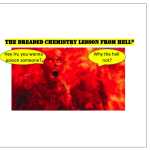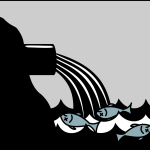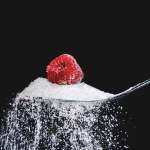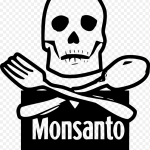A paper in the journal Science describes a new method for breaking down forever chemicals (PFAS), which, as their name implies are not so easy to destroy. Can this method be used to remove traces of these chemicals from our water? Or for anything else?
Chemicals & Chemistry
Similar to the Wizard of Oz, surprising facts are revealed when the curtain is pulled back on EPA’s PFAS Health Advisories. Why did EPA set protective “safe levels” against adverse outcomes not seen in the U.S. population? In this article, I will examine why EPA set the health advisories using methodology as they did, which I believe, allows scare tactics against PFAS to continue and flourish.
Activist groups like to use children's health as a bargaining chip in debates about pesticide safety. I'm a dad, and I call shenanigans on this disingenuous scare tactic.
If you're worried about Monkeypox, school shootings, car accidents, or any other possible threat to your health, stop this instant. The Environmental Working Group (EWG) has identified a greater risk for you to fret about—frozen pizza.
"Climate-anxious" college students are pushing to have low-risk pesticides banned from their campuses. Meanwhile, states that have legalized recreational marijuana use are concerned that their new policy may cause more car accidents. We examine the science behind both stories on episode 14 of the Science Dispatch podcast.
We hear a lot about the tons of plastic that pollute our oceans, but the solution to this troubling problem gets much less airtime. Let's take a closer look at the answer. Hint: it isn't paper straws.
A recent story about the bizarre symptoms of policemen, who were exposed to street fentanyl, turned out to be anxiety attacks – not fentanyl poisoning. What happened? Yes, it's time for another Dreaded Chemistry Lesson From Hell!
The Environmental Working Group (EWG) is once again warning consumers that their food may be tainted by "forever chemicals." Let's take a look at all the important details the activist group left out.
Is widespread use of artificial sweeteners polluting the environment? If so, what do we do about it? Join us on the latest episode of the Science Dispatch podcast as we take a critical look at the evidence.
Suffering from "climate anxiety," some of America's entitled college students are working to get low-risk pesticides banned from their campuses, in a bid to slow global warming. They all need therapy and a basic science lesson.
Anti-pesticide activist Carey Gillam recently moderated a panel discussion about the weed killer glyphosate. I attended and took notes. Here's what I saw.
Environmental Working Group claims that "obesogenic" chemicals are helping to make everybody fat. Is EWG correct? Next, do we need a COVID booster shot that specifically targets Omicron sub-variants?

